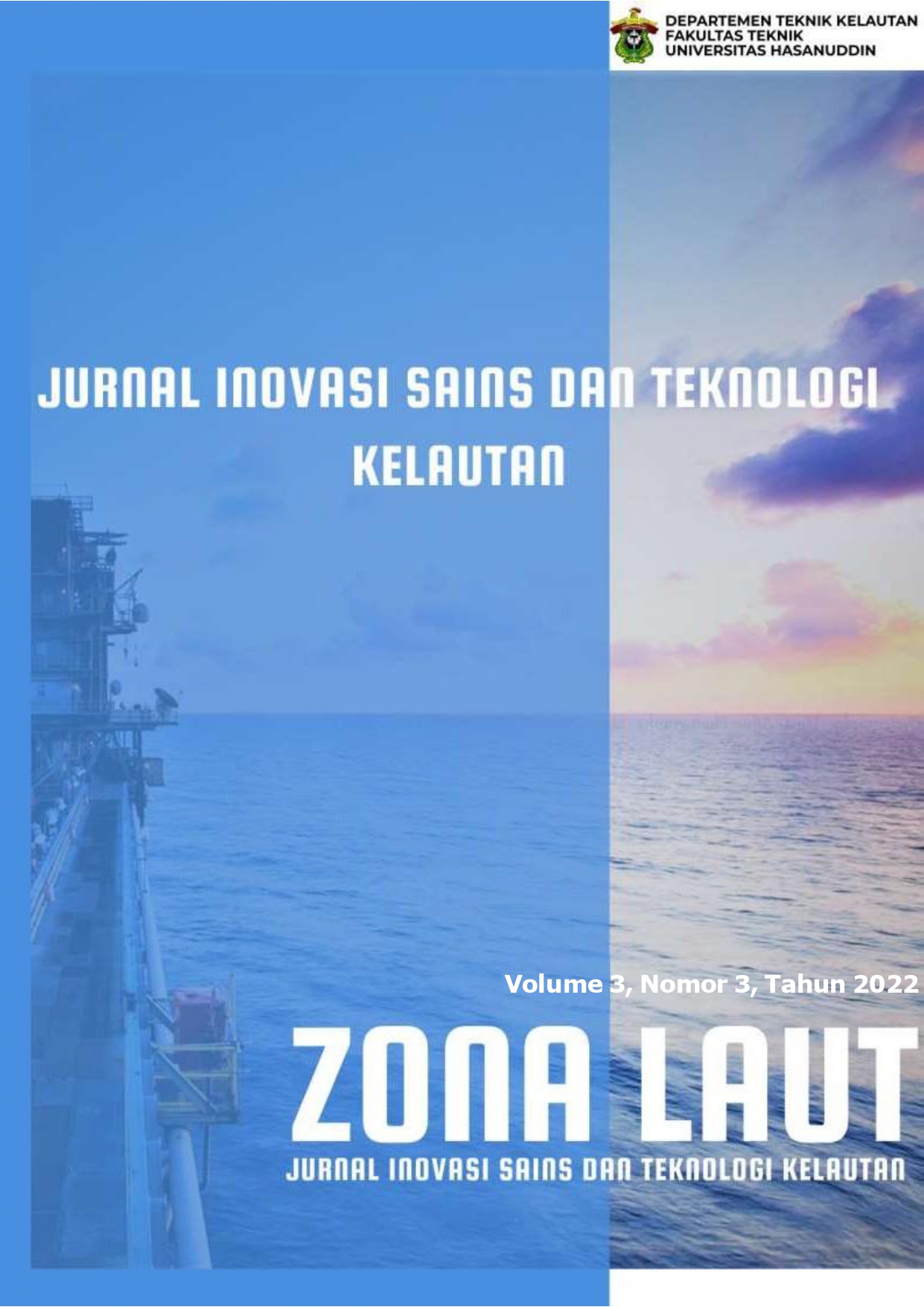Design of Oil Spill Recovery Boat for Tanjung Priok Port Area
Main Article Content
Abstract
In recent years, trade traffic through Tanjung Priok Port has always increased. An increase in the economy always has a negative impact on the environment. Because every ship that docks has the potential to dump waste in the port area. Most of the causes of marine pollution in Indonesia are caused by ship waste, of course this is related to the lack of awareness of ship operators about the cleanliness of the environment around the port. Related to this, this research was conducted to plan an environmentally friendly Oil Spill Recovery Boat, by using electric power for navigation and communication needs. Oil spill control vessel design. This Oil Spill Recovery Boat has a catamaran hull designed using the Maxsurf application. The method used to determine the main size of the Oil Spill Recovery Boat is linear regression, namely by using comparison vessels that have been compiled and then adjusted to the number of oil spills in the research area. By using Maxsurf software, the main dimensions obtained are L = 10.0 m, B = 4.42 m, H = 1.34 m and T = 0.61 m.. This ship has a crew of 3 people.
Downloads
Article Details

This work is licensed under a Creative Commons Attribution 4.0 International License.
Allow anyone to modify, improve, and make derivative works, even for commercial purposes, as long as they credit to you for the original work.
References
Republik Indonesia. 1999. Peraturan Pemerintah No. 19 Tahun 1999 tentang Pengendalian dan/atau Perusakan Laut. Lembaran Negara RI Tahun 1999
Indriani, Netty, dan Muhammad Hendri. 2010. “Simulasi Pemodelan Arus Pasang Surut di Luar Kolam Pelabuhan Tanjung Priok Menggunakan Perangkat Lunak SMS 8.1”. Palembang. Maspari Journal 01-79/83.
Brekke, C., & Solberg, A. H. S. (2005). Oil spill detection by satellite remote sensing. Remote Sensing of Environment.
Sulistyono, 2002. “Dampak Tumpahan Minyak (Oil Spill) Di Perairan Laut Pada Kegiatan Industri Migas Dan Metode Penanggulangannya”. Forum Teknologi, 03(1), 49-57.
Balsamo,F., C.Capasso, G.Miccione, and O. Veneri. 2017. Hybrid Storage System Control Strategy for All-Electric Powered Ships.Science Direct. 6-8. September 2017. Italy

